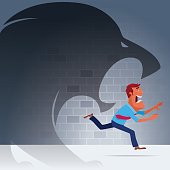Jo Brudar, MYPAS Counsellor shares her reflections on anxiety and our responses.
Everyone feels anxious from time to time. Although it can feel scary, uncomfortable and even embarrassing at times, it’s normal. In fact our bodies are designed to help us recognise the things that might hurt us and to keep us safe from danger.
A long time ago, this anxiety might have helped you when you feel threatened – like a lion coming to eat you! Your anxiety signals to you that you are in danger and your body begins to prepare itself to keep you safe. It might do this in several ways:
Fight: You might become angry, shout or lash out
Flight: You might run away or avoid the situation and become tearful
Freeze: You might withdraw into yourself, find it difficult to talk and become very quiet
Fawn: You might agree with others to avoid conflict, go out or your way to stay on someone’s good side or try to make things perfect
Faint: you might feel very tired, weak and unmotivated
When you are feeling anxious, you might start to feel physical changes. This is your body’s way of preparing to protect itself. Some common changes to your body when you feel anxious include;
Your heart starts beating really fast and you start breathing faster or harder – this is your body working harder to pump blood and oxygen to your muscles.
You may start to feel sweaty and clammy – your body is preparing to try and keep you cool so that you can work harder to run or fight.
You might feel your muscles tensing up ready for action
You might find yourself becoming forgetful, struggling to sleep or finding it hard to concentrate – when you feel like you are under threat from a lion, it would be very hard to think about anything else!
Nowadays, it is very unlikely that you will be faced with a lion and most of big threats from long ago are no longer a worry. However, these days our bodies may recognise other situations as a threat, even if you are not in physical danger. You might feel anxious about exams, in social situations, on social media or doing a presentation to name a few.
Just because these responses to anxiety are common, it doesn’t make them feel any less uncomfortable or challenging. Sometimes we may not even know why we are anxious but it can help to feel prepared by learning to listen to our body to help recognise when we are anxious.
It is important to look after ourselves by eating well, getting enough sleep and having time to relax to help manage our anxiety. It can be helpful to tell trusted friends, family and teachers about our anxiety and letting them know what helps and what makes things feel worse so that you can feel supported. You can access lots of helpful strategies to help feel calm such breathing activities, thinking activities and practicing mindfulness.
Please see below some links that may be helpful and please feel free to access MYPAS digital drop in Monday- Friday between 3.30-5.30pm for further support, advice and information. You can access this on our website: www.mypas.co.uk
MOODJUICE – Anxiety – Self-help Guide (scot.nhs.uk)






